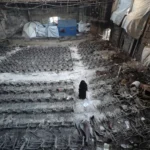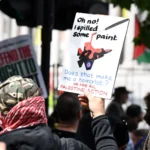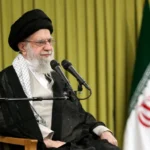Table of Contents
Mozambique is facing two deep crises that, on the surface, may appear unrelated but are tied by the same thread of public frustration and broken trust between the people and the state. Following the disputed 2024 presidential election and the ensuing violent protests, and with insurgent violence resurging in the northern province of Cabo Delgado, a growing political dialogue in the capital, Maputo, could be the bridge the country desperately needs.
The unrest that exploded across Mozambique after the electoral commission declared FRELIMO candidate Daniel Chapo the winner in October 2024 has had lasting consequences. Demonstrations broke out across the country, driven by accusations of electoral fraud and frustration with a political system many citizens see as unresponsive and corrupt. More than 300 people were killed in violent confrontations, and thousands were arrested. Major economic infrastructure, including ports and trade routes, was disrupted, resulting in significant economic losses of billions. And yet, amid the violence and upheaval, a new window of opportunity has opened.

Cabo Delgado: A Forgotten Region, Now in Focus
Cabo Delgado, Mozambique’s northernmost province, has long been marginalized by the central government. Its population, ethnically and linguistically distinct from the south, has often felt neglected by national policies and left behind in terms of development. This isolation has helped fuel an insurgency that erupted in 2017, spearheaded by the extremist group Islamic State–Mozambique (ISM).
In early 2025, ISM attacks surged by more than 30% compared to the same period the year before. Unlike earlier phases of the conflict that targeted government buildings, ISM now focuses on disrupting economic activity, attacking roads, mining operations, and agricultural sites. This strategic shift allows the group to weaken the state’s credibility while gaining resources and expanding influence.
Their operations along the N380 and N14 highways—critical arteries for goods and travel—have caused widespread fear. Motorists are extorted at illegal checkpoints, and trade has slowed dramatically. Attacks have also expanded into neighboring Niassa Province, where tourism and conservation projects are now under threat. Meanwhile, foreign nationals have been targeted as well—recent incidents include the kidnapping of four Chinese workers and an assault on a Russian research vessel.

Political Dialogue: A Chance to Do Things Differently
Initially, the government responded to the protests the same way it responded to insurgents: with force. The police and military cracked down on demonstrators, causing further casualties and mass arrests. In February 2025, President Chapo even publicly compared protesters to terrorists, an inflammatory move that deepened the rift between the government and the people.
But then came a surprising shift. In March, Chapo agreed to a meeting with opposition leader Venâncio Mondlane—a figure with strong grassroots support and a key critic of the election process. This meeting was not just symbolic. Both sides agreed to begin a series of talks aimed at addressing the deeper issues behind the unrest. Promises were made to compensate victims of police brutality and grant amnesty to protesters wrongfully detained. These gestures, though small, signaled a potential new direction for governance in Mozambique.

From Protests to Peace: Applying Lessons to Cabo Delgado
What’s being discussed in Maputo now could provide a roadmap for stabilizing Cabo Delgado. If the political dialogue remains serious and inclusive, it can pave the way for:
1. Accountability for Security Forces
Cabo Delgado’s residents have long suffered at the hands of security forces accused of arbitrary arrests, extortion, and abuse. Applying the same principle being discussed in the political dialogue—compensating victims of police violence—would send a strong signal to people in the north that their lives matter just as much as those in the south.
2. Legal Reforms and Due Process
The proposed amnesty for protesters in the south should be extended to civilians in Cabo Delgado accused of supporting the insurgency without evidence or trial. Establishing a transparent, fair legal process would rebuild trust in the rule of law and weaken insurgent narratives about government oppression.
3. Investing in Youth and Opportunity
Youth in Cabo Delgado face bleak prospects. Thousands of schools have been destroyed in the conflict. Farming is disrupted, trade routes are unsafe, and jobs are scarce. The political dialogue’s reference to youth empowerment needs to become concrete: vocational training, scholarships, job creation, and rebuilding schools should be part of a national strategy that includes the north. Doing so would offer young people alternatives to joining armed groups.

Conclusion: The Time to Act is Now
The unrest in Mozambique is not just about stolen votes or distant insurgents. It reflects a deeper national crisis: a broken social contract, fraying trust, and rising inequality. The dialogue between Chapo and Mondlane—if expanded to include voices from all regions, especially Cabo Delgado—could be the beginning of a new chapter.
Political stability cannot be achieved by force alone. It requires dialogue, inclusion, and justice. And it requires recognizing that the pain felt in the streets of Maputo is not so different from the suffering endured in the villages of Cabo Delgado.
By bridging these divides, Mozambique has a chance to not only end its cycles of violence but also to begin the hard work of healing and building a future that works for all its citizens.
Author Profile
- Syed Tahir Abbas is a Master's student at Southwest University, Chongqing, specializing in international relations and sustainable development. His research focuses on U.S.-China diplomacy, global geopolitics, and the role of education in shaping international policies. Syed has contributed to academic discussions on political dynamics, economic growth, and sustainable energy, aiming to offer fresh insights into global affairs.
Latest entries
 Middle East AffairsJuly 14, 2025An Open Letter from Gaza’s University Presidents: Resisting Scholasticide Through Education
Middle East AffairsJuly 14, 2025An Open Letter from Gaza’s University Presidents: Resisting Scholasticide Through Education U.S. PolicyJuly 9, 2025Impacts of the One Big Beautiful Bill Act on the U.S. Mining Sector
U.S. PolicyJuly 9, 2025Impacts of the One Big Beautiful Bill Act on the U.S. Mining Sector Human RightsJuly 2, 2025Palestine Action Is a Moral Compass. That’s Why the UK
Human RightsJuly 2, 2025Palestine Action Is a Moral Compass. That’s Why the UK International PoliticsJune 26, 2025Iran Confirms Serious Damage to Nuclear Sites from U.S. Strikes, Rules Out Meeting with Washington
International PoliticsJune 26, 2025Iran Confirms Serious Damage to Nuclear Sites from U.S. Strikes, Rules Out Meeting with Washington



1 comment
Your writing style is so engaging—it always pulls me in from the very first line!